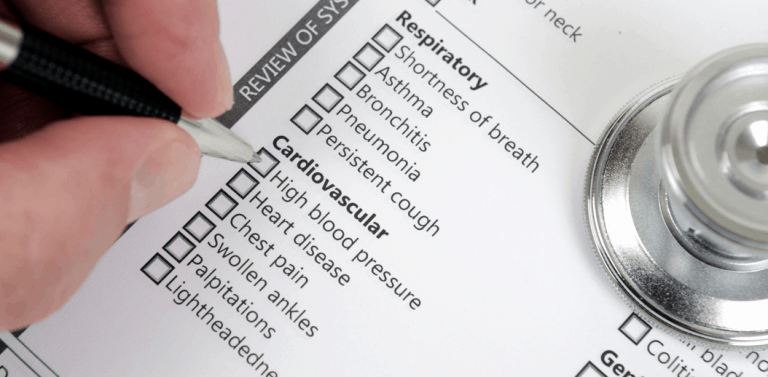All the test results are in and so is the diagnosis: prostate cancer. What should you do now? It is time to learn as much as you can about your treatment options and then, with the guidance of your physicians, make a decision that best suits your situation. If possible, it is best to consult more than one prostate cancer specialist–a medical oncologist, a radiation oncologist, and a urologist—to help you with the process.
There are a number of treatment options for prostate cancer. However, there is generally no right answer for the best prostate cancer treatment because there is a lack of good data from well-run trials to determine the best course of therapy. That’s one reason why it is so important to consult with several experts when making your decision.
A key factor you need to consider, and which many people neglect, is choosing your doctor. Generally, doctors who treat prostate cancer tend to recommend the procedures they are accustomed to performing. Therefore a surgeon will recommend surgery, a radiation oncologist will suggest radiation, and so on. Keep this in mind when you are considering your treatment options and make sure you explore all the options before making a decision. No matter what treatment option is chosen, you need to also consider lifestyle and other considerations as maintaining maximum immunity and health is fundamental to recovery and long-term wellness.
And finally, you need to determine what is important to you in terms of your post-treatment priorities, as now is also the time to start planning for recovery. Factors such as incontinence, erectile dysfunction and penile rehabilitation and other concerns should be discussed and planned based on your individual circumstances and priorities.
The following questions are offered to help you make your decision and to understand the possible and probable consequences of choosing prostatectomy.
Factors to Consider When Choosing Treatment
- When choosing which treatment is best for you, which factors are most influential in driving your decision?
- How long it takes to recover from the surgery
- The long-term survival rate associated with the surgery
- The impact of the surgery on erectile function/potency
- The impact of the surgery on urinary incontinence
- Option of minimally invasive procedure versus open procedure
- The impact of the surgery on overall lifestyle
- The possible need for secondary treatment(s) after surgery
- Possibility that all the cancer can be removed
- The side effects associated with the surgery
- The possibility of serious complications associated with the surgery
General Questions for the Doctors
Given my age, preferences, stage and grade of cancer, and overall health, what can I expect if: [1]
- I decide to adopt a “watchful waiting/active surveillance” approach?
- I choose conventional radiation rather than prostatectomy?
- I choose brachytherapy rather than prostatectomy? I choose hormone therapy rather than prostatectomy?
- I choose cryotherapy rather than prostatectomy?
Additional questions:
- What are the different types of prostatectomy?
- Given my current condition, what are the chances you can perform a nerve-sparing prostatectomy?
- What pre-surgery tests and examinations do I need to undergo?
- Should I bank blood prior to surgery for possible transfusion? [2]
- Which nutritional and natural supplements can I use after prostatectomy to facilitate recovery and overall prostate health?
- What dietary steps should I take after prostatectomy to facilitate recovery and overall prostate health?
[1] According to a report from Sanford School of Medicine, prostatectomy is usually recommended for men whose chances for cure are good and who have ten or more years’ life expectancy. Minimally invasive laparoscopic and robotic prostatectomy have become the predominant approaches even though they have a higher dissatisfaction rate and they are more expensive than traditional prostatectomy surgery. Source: Eckrich P. Surgical treatment of prostate cancer: what to do? SD Medical 2010; Spec No 46-68
[2] Less than 5% of men undergoing radical prostatectomy require a transfusion during or after surgery. One study showed that robotic laparoscopic prostatectomy required fewer transfusions (0.8%) than open prostatectomy (3.4%). Source: Floyd & Delores Jones Cancer Institute at Virginia Mason; Kordan Y et al. Comparison of transfusion requirements between open and robotic-assisted laparoscopic radical prostatectomy. BJI International 2010 Oct; 106(7): 1036-40
Radical Perineal Prostatectomy
How is a radical retroperinal prostatectomy performed? Would you recommend it for my condition?
What type of anesthesia is used during surgery?
How long does a perineal prostatectomy take?
What is the typical recovery time from perineal prostatectomy?
How much pain will I have after surgery? [1]
How long will I need to use a catheter after a perineal prostatectomy? [2]
What is the long-term survival rate associated with perineal prostatectomy?
What are the chances my cancer will return or recur after perineal prostatectomy? [3]
How do you treat rising PSA levels after perineal prostatectomy?
What are the chances I will need hormone therapy after perineal prostatectomy?
What are the chances I will need radiation therapy after perineal prostatectomy?
What are the chances I will need chemotherapy after perineal prostatectomy?
If my lymph nodes need to be removed, how easy is that procedure with perineal prostatectomy?
What are the chances I will experience the following side effects/complications after perineal prostatectomy?
- Bladder neck contracture
- Bleeding
- Bowel incontinence [4]
- Deep venous thrombosis
- Erectile dysfunction [5]
- Gastrointestinal problems
- Hernia
- Infection
- Penis shrinkage (atrophy)
- Rectal injury
- Urinary incontinence [6]
How successful is treatment for erectile dysfunction after perineal prostatectomy?
How long after perineal prostatectomy must I wait until trying to resume sexual relations?
How successful is treatment for erectile dysfunction after perineal prostatectomy?
How soon can I begin penile rehabilitation after surgery?
What is the risk of death associated with perineal prostatectomy?
What is the cost of perineal prostatectomy and follow-up care?
How would I prepare for perineal prostatectomy in terms of diet, exercise, medication, and lifestyle changes?
How soon can I resume exercise after undergoing perineal prostatectomy? [7]
How many perineal prostatectomies has my surgeon performed? What has been the outcome of those surgeries?
[1] You can expect some post-surgery pain that may require intravenous or injected medication for several days, although occasionally pain from the incision can last for a few weeks. In most cases acetaminophen is sufficient to control pain. Source: Johns Hopkins
[2] According to one report, the catheter is usually removed approximately 8 days after surgery. Source: Korman HJ et al. Prostate cancer: radical perineal prostatectomy: treatment.
[3] A report from the Henry Ford Health System notes an 86 percent five-year recurrence-free rate related to open prostatectomy. Source: Henry Ford Health Systems
Also: In a study of 703 men who underwent perineal prostatectomy, 94.5% of patients who had organ-confined disease had no evidence of PSA recurrence at five-year follow-up. Source: Harris MJ. The anatomic radical perineal prostatectomy: an outcomes-based evolution. Eur Urol 2007; 2(1): 81-88.
[4] Bowel/rectal incontinence is rare, but some men experience urgency ofbowel movements and seepage shortly after surgery. This should resolve over time. Source: Johns Hopkins
[5] A report from Henry Ford Health Systemsstates that 36% of men were impotent 12 months after surgery. Source: Henry Ford Health Systems
[6] A report from Henry Ford Health System states a 40% urinary incontinence rate 6 months after the procedure. Source: Henry Ford Health Systems
A study in the Canadian Journal of Urology reports a urinary incontinence rate of about 4% at 12 months post-surgery. Source: Boris RS et al. Radical prostatectomy: a single surgeon comparison of retropubic, perineal and robotic approaches. Can J Urol I 2007; 14(3): 3566-70
[7] Most men return to full activity on an average of three weeks after surgery. Feelings of fatigue or weakness are common for a while. Recovery time varies depending on the patient. Source: Johns Hopkins: http://urology.jhu.edu/MIS/lap_perineal.php
Radical Retropubic Prostatectomy
How is a radical retropubic prostatectomy performed? Would you recommend it for my condition?[1]
What type of anesthesia is used during surgery?
How long does a retropubic prostatectomy take?
What is the typical recovery time from retropubic prostatectomy?
How much pain will I have after surgery?
How long will I need to use a catheter after a retropubic prostatectomy?
What is the long-term survival rate associated with retropubic prostatectomy?
What are the chances my cancer will return or recur after retropubic prostatectomy? [2]
How do you treat rising PSA levels after retropubic prostatectomy?
What are the chances I will need hormone therapy after retropubic prostatectomy? [3]
What are the chances I will need radiation therapy after retropubic prostatectomy?
What are the chances I will need chemotherapy after retropubic prostatectomy?
If my lymph nodes need to be removed, how easy is that procedure with retropubic prostatectomy?
What are the chances I will experience the following side effects/complications after retropubic prostatectomy?
- Anesthetic side effects
- Bladder neck contracture
- Bleeding
- Bowel incontinence
- Deep venous thrombosis
- Erectile dysfunction [4]
- Gastrointestinal problems
- Hernia [5]
- Infection
- Penis shrinkage (atrophy)
- Rectal injury [6]
- Urinary incontinence [7]
How long after retropubic prostatectomy must I wait before resuming sexual relations?
How successful is treatment for erectile dysfunction after retropubic prostatectomy?
How soon can I begin penile rehabilitation after surgery?
How successful is treatment for urinary incontinence after retropubic prostatectomy?
What is the risk of death associated with retropubic prostatectomy?
What is the cost of retropubic prostatectomy and follow-up care?
How would I prepare for retropubic prostatectomy in terms of diet, exercise, medication, and lifestyle changes?
How soon can I resume exercise after undergoing retropubic prostatectomy?
How many retropubic prostatectomies has my surgeon performed? What have been the outcomes of those surgeries?
[1] A radical retropubic prostatectomy is a reasonable option for men who have clinically localized prostate cancer and at least a 10-year life expectancy and low risk of other health factors that could compromise the surgery and outcome. Clinicians generally do not consider this procedure for men older than 73. Source: Ghavamian R and Zincke H. Prostate cancer: radical retropubic prostatectomy.
[2] Each patient’s case is different. Generally, however, immediate use of hormone therapy after retropubic prostatectomy in men who have locally advanced disease and who have low risk factors and at least a 10-year life expectancy can be beneficial. In one study, after a median of 7.1 years of follow-up, 7 of 47 men who received immediate hormone therapy died, compared to 18 of 51 men who did not have hormone therapy. Source: Messing EM et al. Immediate hormonal therapy compared with observation after radical prostatectomy and pelvic lymphadenectomy in men with node-positive prostate cancer. New England Journal of Medicine 1999 Dec; 341(24): 1781-88
[3] A report from the Henry Ford Health System notes an 86 percent five-year recurrence free rate related to open prostatectomy.
[4] The percentage of men who experience erectile dysfunction after open prostatectomy varies and depends on many factors. A report from Henry Ford Health Systems states that 36% of men were impotent 12 months after surgery. Source: Henry Ford Health Systems
[5] Up to 20 percent of men experience a hernia within three years of undergoing a retropubic prostatectomy. A new surgical technique may significantly reduce the incidence of hernia. Source: Stranne J et al. Post-radical prostatectomy inguinal hernia: a simple surgical intervention can substantially reduce the incidence: results from a prospective randomized trial. Journal of Urology 2010; 184:984-89
[6] The rate of rectal/bowel injury requiring long-term therapy was 0.6%. Source: Ghavamian R, Zincke H. Prostate cancer: radical retropubic prostatectomy: treatment.
[7] A study in the Canadian Journal of Urology reports a urinary incontinence rate of about 4% at 12 months post-surgery. Source: Boris RS et al. Radical prostatectomy: a single surgeon comparison of retropubic, perineal and robotic approaches. Canadian Journal of Urology 2007; 14(3): 3566-70
Laparoscopic Prostatectomy
How is a laparoscopic prostatectomy performed? Would you recommend it for my condition?[1]
What type of anesthesia is used during surgery?
How long does a laparoscopic prostatectomy take?
What is the typical recovery time from laparoscopic prostatectomy?
How much pain will I have after surgery?
What are the chances the surgeon will need to switch to an open prostatectomy once he or she begins laparoscopic surgery? [2]
How long will I need to use a catheter after a laparoscopic prostatectomy?
What are the chances my PSA levels will rise after laparoscopic prostatectomy?
How do you treat rising PSA levels after laparoscopic prostatectomy?
What are the chances I will need hormone therapy after laparoscopic prostatectomy?
What are the chances I will need radiation therapy after laparoscopic prostatectomy?
What are the chances I will need chemotherapy after laparoscopic prostatectomy?
If my lymph nodes need to be removed, how easy is that procedure with laparoscopic prostatectomy?
What are the chances I will experience the following side effects/complications after laparoscopic prostatectomy?
- Bladder neck contracture
- Bleeding
- Bowel incontinence
- Deep venous thrombosis [3]
- Erectile dysfunction [4]
- Gastrointestinal problems
- Hernia
- Infection
- Loss of penis length
- Rectal injury
- Urinary incontinence [5]
How successful is treatment for erectile dysfunction after laparoscopic prostatectomy?
How long after laparoscopic prostatectomy must I wait before resuming sexual relations?
How successful is treatment for erectile dysfunction after laparoscopic prostatectomy?
How soon can I begin penile rehabilitation after surgery?
What is the risk of death associated with laparoscopic prostatectomy? [6]
What other side effects or complications are possible after laparoscopic prostatectomy?
What is the cost of laparoscopic prostatectomy and follow-up care?
How would I prepare for laparoscopic prostatectomy in terms of diet, exercise, medication, and lifestyle changes?
How soon can I resume exercise after undergoing laparoscopic prostatectomy?
How many laparoscopic prostatectomies has my surgeon performed? What have been the outcomes of those surgeries?[7]
[1] Although not all men are candidates for laparoscopic surgery, most are, so it pays to discuss this option with your doctors.
[2] In a study that included 5,961 patients, the rate of deep venous thrombosis was 0.5% among patients who had undergone either laparoscopic or robotic-assisted radical prostatectomy. Source: Secin FP et al. Multi-institutional study of symptomatic deep venous thrombosis and pulmonary embolism in prostate cancer patients undergoing laproscopic or robot-assisted laparoscopic radical prostatectomy. European Urology 2009; 53(1): 134-45
[3] The need to switch to an open prostatectomy occurs in about 1 percent of cases, according to Johns Hopkins. Source: Johns Hopkins
[4] Erectile dysfunction is difficult to predict because many factors are involved. One Johns Hopkins study found that 48% of men who had nerve-sparing laparoscopic prostatectomy had successful intercourse at 6 months and 72% were successful at one year. Source: Johns Hopkins:
[5] Most men experience at least some urinary incontinence after surgery. Johns Hopkins reports that 70% of men regain urinary incontinence 6 months after laparoscopic prostatectomy, and 90% regain it by 12 months. Source: Johns Hopkins
[6] In one study of 2766 patients, the risk of death at 71-month follow-up was 0.0007%. Source: Badani KK et al. Evolution of robotic radical prostatectomy: assessment after 2766 procedures. Cancer 2007 Nov; 10(9): 1951-58
[7] A 2009 study published in the Journal of the American Medical Association reported that patients are not told that it could take as many as 250 surgeries with the robot before a surgeon is fully proficient at robotic-assisted radical prostatectomy, and that before a surgeon begins scheduling cases, he or she needs only to attend a two-day course and get assistance from another surgeon.
Robotic Prostatectomy
How is robotic prostatectomy performed? Would you recommend it for my condition?
What type of anesthesia is used during surgery?
How long does robotic prostatectomy take?
What is the typical recovery time from robotic prostatectomy?
How much pain will I have after surgery?[1]
How long will I need to use a catheter after robotic prostatectomy? [2]
What are the chances my PSA levels will rise after robotic prostatectomy?
How do you treat rising PSA levels after robotic prostatectomy?
What are the chances I will need hormone therapy after robotic prostatectomy?
What are the chances I will need radiation therapy after robotic prostatectomy?
What are the chances I will need chemotherapy after robotic prostatectomy?
If my lymph nodes need to be removed, how easy is that procedure with robotic prostatectomy?
What are the chances I will experience the following side effects or complications after robotic prostatectomy?
- Bladder neck contracture
- Bleeding
- Bowel incontinence
- Deep venous thrombosis [3]
- Erectile dysfunction [4]
- Gastrointestinal problems
- Hernia [5]
- Infection
- Penis shrinkage (atrophy)
- Rectal injury
- Urinary incontinence [6]
How successful is treatment for erectile dysfunction after robotic prostatectomy?
How long after robotic prostatectomy must I wait until trying to resume sexual relations?
How successful is treatment for erectile dysfunction after robotic prostatectomy?
How soon can I begin penile rehabilitation after surgery?
What is the risk of death associated with robotic prostatectomy? [7]
What other side effects or complications are possible after robotic prostatectomy? [8]
What is the cost of robotic prostatectomy and follow-up care?
How would I prepare for robotic prostatectomy in terms of diet, exercise, medication, and lifestyle changes?
How soon can I resume exercise after undergoing robotic prostatectomy?
How many robotic prostatectomies has my surgeon performed? What have been the outcome of those surgeries?
[1] Henry Ford Health Systems notes that men reported a pain score of 3 (out of a high of 10) after surgery, compared with a score of 7 after open prostatectomy. Source: Henry Ford Health Systems
[2] In a study that included 5,961 patients, the rate of deep venous thrombosis was 0.5% among patients who had undergone either laparoscopic or robot-assisted radical prostatectomy. Source: Secin FP et al. Multi-institutional study of symptomatic deep venous thrombosis and pulmonary embolism in prostate cancer patients undergoing laproscopic or robot-assisted laparoscopic radical prostatectomy. European Urology 2009; 53(1): 134-45
[3] A new procedure may allow men who undergo robotic prostatectomy to Tewari A et al. Catheter-less robotic radical prostatectomy using a custom-made synchronous anastomotic splint and vesical urinary diversion device: report of the initial series and perioperative outcomes. BJU International 2008 Sep; 102(8): 1000-4
[4] The percentage of men who experience erectile dysfunction after robotic prostatectomy varies and depends on many factors. A report from Henry Ford Health Systems states that only 3% of men were impotent 12 months after surgery. None of these men had problems with erectile dysfunction before surgery. Source: Henry Ford Health Systems
[5] Hernia following robotic prostatectomy is rare and not well understood. A 2009 study reported only 2 cases occurring among more than 500 robotic procedures conducted by one surgeon. Source: Hotston MR et al. Port site hernias following robotic-assisted laparoscopic prostatectomy. Journal of Robotic Surgery 2009; 3(1): 49-51.
[6] The percentage of men who experience urinary incontinence after open prostatectomy varies and depends on many factors. A report from Henry Ford Health Systems states that only 4% of men were incontinent 6 months after surgery. Source: Henry Ford Health Systems
[7] In one study of 2766 patients, the risk of death at 71-month follow-up was 0.0007%. Source: Badani KK et al. Evolution of robotic radical prostatectomy: assessment after 2766 procedures. Cancer 2007 Nov; 110(9): 1951-58
[8] A study published in the Journal of Endourology reported a 12% complication rate among 200 men who underwent robotic prostatectomy, with urinary retention occurring in 7 of the 24 men who had complications. Source: Jeong J et al. Clavien classification of complications after the initial series of robot-assisted radical prostatectomy: the Cancer Institute of New Jersey/Robert Wood Johnson Medical School experience. Journal of Endourology 2010 Sep; 24(9): 1457-6







